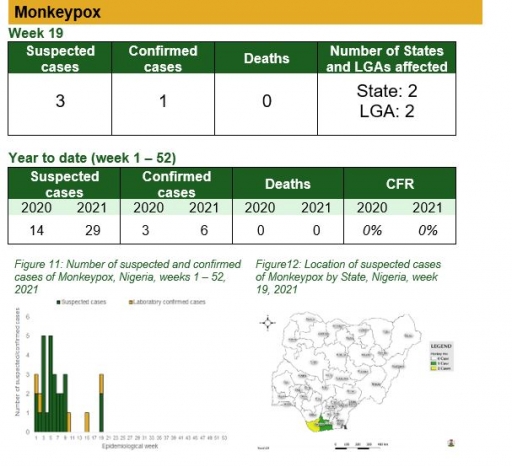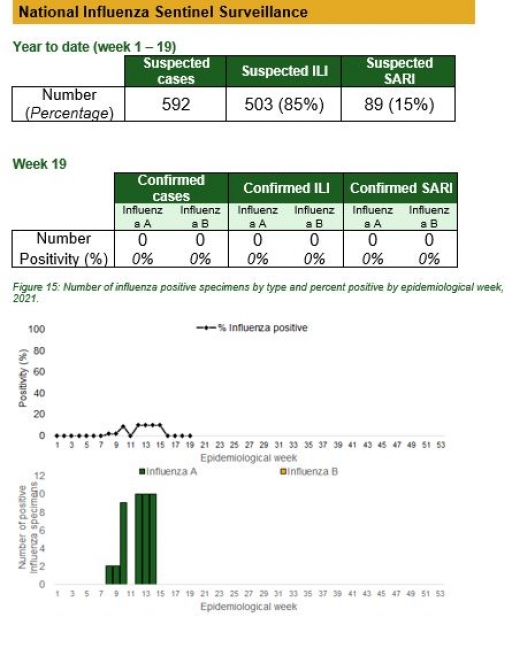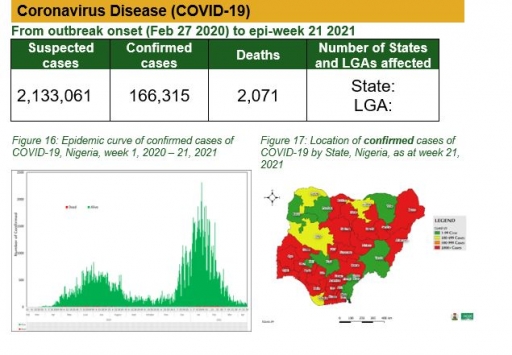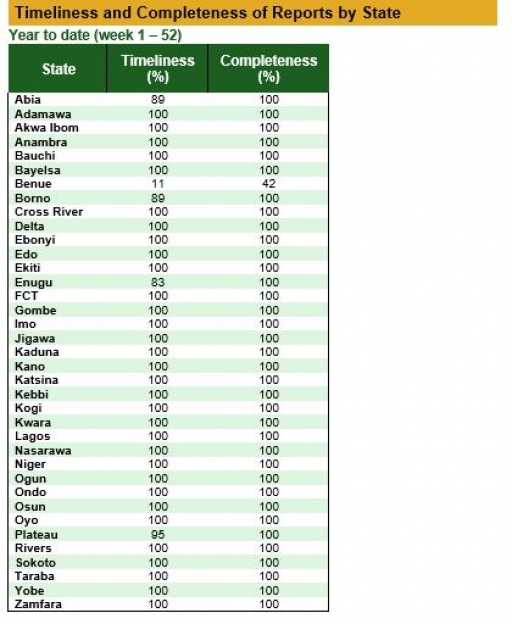Editoral
Strengthening Risk Communication Activities for One-Health Approach in Nigeria
Posted: 07-06-2021 10:42:42 AM
Emerging and re-emerging infectious diseases of zoonotic origin have remained a public health burden threatening Nigeria’s health security with the country labelled a hotspot for some of them. These diseases have been listed among priority diseases for reporting under the National Integrated Disease Surveillance and Response Strategy. These include Lassa fever, Ebola virus disease, yellow fever, monkeypox and the ongoing coronavirus disease. Aside the negative impact zoonotic diseases pose on socio-economic, educational and political activities, the usually associated high morbidity and mortality remain a cause for concern. Apart from high population density, factors promoting increasing human-animal interface such as human encroachment on ecosystem, rapid urbanization etc, continue to place Nigeria at risk of these highly pathogenic zoonotic diseases.
To address the above and given the human-animal-environment inter-connectedness, the Nigeria Centre for Disease Control (NCDC) has continued to work the Federal Ministry of Agriculture and Rural Development, Federal Ministry of Environment, the World Health Organisation and other relevant development partners to adopt a One-Health (OH) approach in her diverse programme areas. This is a collaborative, multi-sectoral, and transdisciplinary approach recognizing the interactions between humans, animals, and their shared environment.
One key product from the afore-mentioned collaboration was the development in 2018 of a five-year OH strategic plan 2019-2023. This roadmap envisions a nation of healthy people and healthy animals living in balanced ecosystem. The NCDC also provides an oversight for the implementation of the OH-oriented World Bank Regional Disease Surveillance System Enhancement (REDISSE) Project in Nigeria.
Aside coordination of ongoing implementation of activities in the OH plan, the NCDC is currently working closely with Breakthrough Action Nigeria (BAN) of the USAID flagship interventions to promote risk communication activities (BAN) for social and behavioural change, this under the prime implementation of John Hopkins Centre for Communication Programs (JHU-CCP). In line with this, the NCDC and the BAN from 1st – 4th June 2021 organised a training of trainers’ workshop on OH Risk Communication (RC) for media and public health communicators. The objectives are to:
1. Adapt and own the JHCCP OH RC training package as a national document.
2. Equip a group of master trainers to effectively deliver the training package designed to strengthen the capacity of public health communicators and media
3. Support OH partners, public health communicators, and media professionals to learn, practice and apply the principles of effective risk communication.
4. Improve confidence and ability of OH partners, public health communicators, and media professionals to effectively respond to the public’s needs and concerns regarding prioritized zoonotic diseases (PZDs) and public health emergencies to minimize conflicting information, rumors and misinformation.
5. Explore if PZD media strategy is a priority for the country
With participants drawn from One Health Technical Committee, National Risk Communication Technical Working Group, Media and Global Health Security Agenda/other implementing partners, the workshop provided a unique opportunity to adapt and develop a draft national OH training package on RC and develop the capacity of a pool of trainers in the area of RC.
The critical next step is for the NCDC and partners to adapt, finalise and broadly disseminate training manual for improved RC activities in Nigeria.
Summary of Incidents
Notes
1. Information for this disease was retrieved from the Technical Working Group and Situation Reports
2. Case Fatality Rate (CFR) for this disease is reported for confirmed cases only
3. Information for this disease was retrieved from IDSR 002 data
4. CFR for this disease is reported for total cases i.e. suspected + confirmed
5. Information for sentinel influenza was retrieved from the laboratory

Lassa Fever
Key points
â— There were 61 suspected cases, one was laboratory confirmed and one death was recorded from one LGA in Ondo state
Actions
To date:
â— Conducted 2021 Lassa fever (LF) high burden states preparedness/response engagement meeting
â— Dissemination of reviewed case management and safe burial practices guidelines
â— Ensured all five LF molecular laboratories in the NCDC network are working at full capacity for timely testing of samples with reduced turnaround time
Planned:
â— Finalise LF five-year strategic plan

Cerebrospinal Meningitis (CSM)
Key points
◠There were five suspected cases of Cerebrospinal Meningitis (CSM) reported from four LGAs in three states (Borno – 3, Enugu – 1 & Katsina – 1). One was laboratory confirmed and no death was recorded
Actions
To date:
â— National CSM TWG meets weekly to review reports from states and plan appropriately
â— Enhanced surveillance in all states
Planned:
â— Continue harmonisation of the national line list and SORMAS data
â— Continue to ensure that states reporting cases send their line lists and collect CSM samples

Yellow Fever
Key points
â— There were 19 suspected cases of Yellow Fever (YF) reported from 14 LGAs in eight states. None were laboratory confirmed and no death was recorded
Actions
To date:
â— National YF multi-partner Technical Working Group (TWG) continues to coordinate activities across states.
â— Daily monitoring and analysis of surveillance data across the country to guide response activities
â— Ongoing validation of Mologic rapid test kit for Yellow fever
Planned:
â— Continue monitoring and analysis of YF (Yellow fever) data across all states and FCT to guide response
â— Continue coordination of prompt transportation samples to the laboratories

Cholera
Key points
◠There were 86 suspected cases of cholera reported from nine LGAs in three states (Bauchi – 79, Bayelsa – 6 & Delta – 1). Five cases were laboratory confirmed and six deaths were recorded
Actions
To date
â— National Cholera Multi-Sectoral Technical Working Group (TWG) is monitoring all states and supporting affected states
â— Developed the 2021 Annual Cholera Preparedness and Response Work plan
â— Cholera jingles being aired in English and local languages across the country
Planned:
â— Continue follow up and monitoring of non-reporting states
â— Build capacity for sample collection, transportation, and laboratory diagnosis across states

Measles
Key points
â— There were 518 suspected cases of Measles reported from 65 LGAs in 16 states. None was laboratory confirmed and six deaths were recorded
Actions
To date
â— National Measles TWG is closely monitoring measles surveillance data and providing feedback to relevant agencies and development partners
â— Ongoing weekly surveillance and laboratory data harmonisation
Planned:
â— Intensify follow up with states to update and transmit line list
â— Continue monthly measles surveillance data review

Monkeypox
Key points
◠There were three suspected cases of Monkeypox reported from two LGAs in two states (Bayelsa – 2 & Rivers – 1). One case was laboratory confirmed and no death was recorded
Actions
To date
â— National Monkeypox Technical Working Group (TWG) is monitoring activities in all states
Planned:
â— Enhance surveillance for monkeypox in high burden states
â— Continue harmonisation of the national line list and SORMAS data

Acute Flaccid Paralysis (AFP)
Key points
â— There were 38 suspected cases of AFP reported from 35 LGAs in 16 states and FCT. None were laboratory confirmed and no death was recorded

National Influenza Sentinel Surveillance

Coronavirus Disease (COVID-19)
Actions
To date:
â— National COVID-19 multi-partner Emergency Operations Centre (EOC) continues to coordinate response activities across states
â— Held virtual strategic coordination meeting with state team on increasing sample collection and testing in states
â— Commenced the implementation and tracking of the updated national Incident Action Plan (IAP)
â— Rolled out of Surveillance Outbreak Response Management and Analysis System (SORMAS) platform to treatment facilities
Planned:
â— Deploy antigen-based rapid diagnostic test (Ag-RDT) kits and sample collection materials to the selected states
â— Intensify genomic surveillance activities
â— Conduct WASH (Water, Sanitation and Hygiene) assessment across all health facilities
â— Finalise Local Government Area (LGA) / State transmission categorisation

Timeliness and Completeness of Reports

Timeliness and Completeness of Reports by State















 Toll Free Number: 6232
Toll Free Number: 6232 Whatsapp: +234 708 711 0839
Whatsapp: +234 708 711 0839 SMS Number: +234 809 955 5577
SMS Number: +234 809 955 5577 